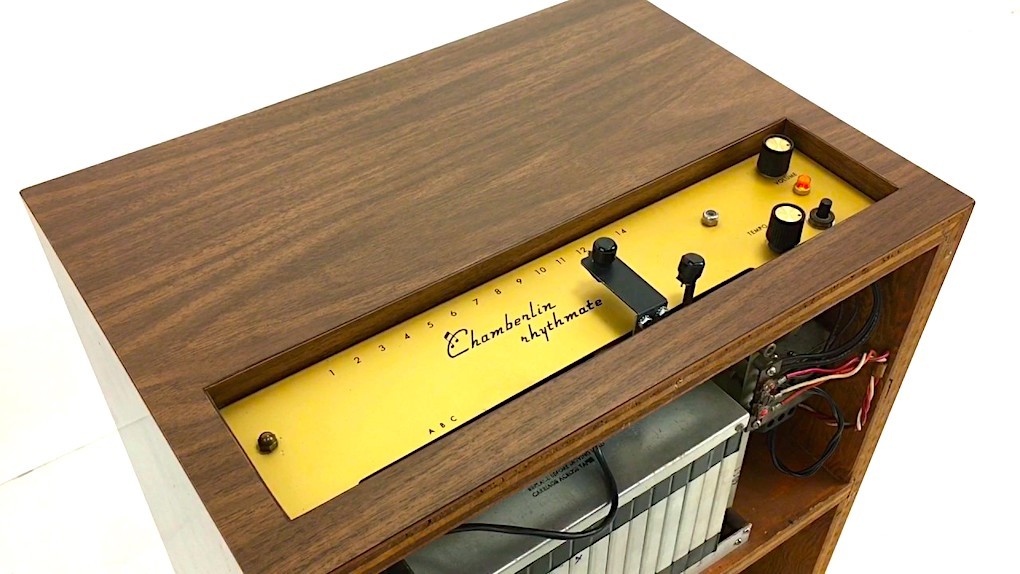- in Production by Bobby Owsinski
The First Real Drum Machine Is Not What You Think – It’s The Rhythmate

When we think of the first drum machines we automatically think of the Rhythm Ace or LinnDrum or even the MPC, but there are a couple that actually predate even those machines. Harry Chamberlin’s all tube Rhythmate was actually the prototype for all that came after, but unfortunately it’s been most overlooked and forgotten. It was not the first however.
That distinction is held by the Rhythimicon, a device created in 1930 by American composer Henry Cowell and Russian inventor Leon Theremin (yes, that Theremin). The unit generated sounds by passing light at photoreceptors through holes in a spinning disc. This generated a rhythm of sorts, but didn’t actually create sounds that were close to a drum kit. Only 3 units were ever built, and they’re all preserved in museums.
Chamberlin’s Rhythmate did sound like a drum kit though, because it was real drums that played back. The sounds were recorded onto magnetic tape which was placed inside the machine. An adjustable tape head was moved via a slider to play one of 14 different tape loops. Each of these 14 tape loops contained patterns recorded from a live drummer.
Only 10 Rhythmates were ever sold, but remember how cutting edge this actually was back in the 1940s! In fact, the Musicians Union even banned the box and other Chamberlin music inventions for fear of putting real musicians out of work.
The Rhythmate had a profound effect on rock music in the 1960s in an indirect way. A salesman for Chamberlin supposedly took the idea to a group in England who then came up with the Mellotron, which also worked on tape loops.
This just goes to show that sometimes what we think is so cutting edge has been actually been thought of way before our time. We’re just rediscovering the initial discovery.
Check out the video below of Chamberlin’s Rhythmate. I think you’ll be pleasantly surprised with just how good it sounded, and what a well thought out device it really was. You can also find out more information here.

